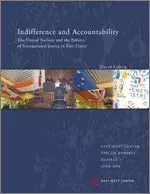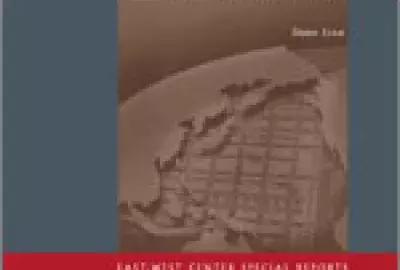Error message

The goals of this report are fourfold: (1) to provide an overall assessment of the "hybrid" UN sponsored Serious Crimes process in east Timor; (2) to analyze the performance of the various structural components of that process; (3) to examine the legacy of the Serious Crimes enterprise; and (4) to discuss the lessons to be learned from the five-year experience of the United Nations in seeking justice for the people of East Timor.
The report's conclusions are based upon a comprehensive and detailed analysis of a number of key areas and a full assessment of the jurisprudence of the trials. It draws heavily upon hundreds of hours of interviews with key participants in every aspect of the Serious Crimes process. The report demonstrates that, on the whole, the process was so deeply flawed from the beginning that, despite the important and successful efforts of key individuals to make structural improvements, egregious problems remained until the very end. These problems are serious enough to at least call into question whether important aspects of the process as a whole met international standards. Further, an analysis of the impact of these problems upon trial and appellate proceedings and Judgments provides substantive grounds for questioning the basic fairness of a significant number of the Serious Crimes trials, the adequacy of the appeals process, and, hence, the legitimacy of some of the ensuing convictions.
One of the questions this report addresses is why this state of affairs was allowed to persist for so long. This is a question that must be answered if the "lessons learned" from East Timor are to be a guide for future tribunals and for the UN in its ongoing role of administering international judicial institutions.
The goals of this report are fourfold: (1) to provide an overall assessment of the "hybrid" UN sponsored Serious Crimes process in east Timor; (2) to analyze the performance of the various structural components of that process; (3) to examine the legacy of the Serious Crimes enterprise; and (4) to discuss the lessons to be learned from the five-year experience of the United Nations in seeking justice for the people of East Timor.
The report's conclusions are based upon a comprehensive and detailed analysis of a number of key areas and a full assessment of the jurisprudence of the trials. It draws heavily upon hundreds of hours of interviews with key participants in every aspect of the Serious Crimes process. The report demonstrates that, on the whole, the process was so deeply flawed from the beginning that, despite the important and successful efforts of key individuals to make structural improvements, egregious problems remained until the very end. These problems are serious enough to at least call into question whether important aspects of the process as a whole met international standards. Further, an analysis of the impact of these problems upon trial and appellate proceedings and Judgments provides substantive grounds for questioning the basic fairness of a significant number of the Serious Crimes trials, the adequacy of the appeals process, and, hence, the legitimacy of some of the ensuing convictions.
One of the questions this report addresses is why this state of affairs was allowed to persist for so long. This is a question that must be answered if the "lessons learned" from East Timor are to be a guide for future tribunals and for the UN in its ongoing role of administering international judicial institutions.







